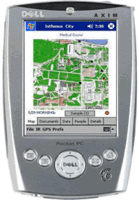Research Purposes
>"I would surely be interested in knowing more about your research purposes"
Oh boy, that's actually a challenging question for me in that it's forcing me to both narrow in on a few specific purposes, and then to actually state them. Let me begin broad.
In the larger picture, I'm interested in getting people to think for themselves. I feel that public formal education, as well as much of the learning that occurs from interaction with mainstream media, and much religious-based intruction, promotes hive thinking. One of the campers at FML last year brought Gillian Cross's The Demon Headmaster Takes Over that looks at a (not too distant) world filled with inane game shows and entertainment, where "Curiosity is the curse of the human brain!" is the official slogan. "Suddenly, asking questions is dangerous - and finding out the answers seems impossible. What's going on?" It is another (somewhat sillier) version of Aldous Huxley's Brave New World or Lois Lowry's The Giver. More recently, I've read the same concern in Neal Stephenson's The Diamond Age: Or, A Young Lady's Illustrated Primer where Lord Finkle-McGraw wants his daughter to learn to think for herself, rather than take on the mindless (behavior of the Victorian phyle she's being raised in. Actually, "mindless" isn't an accurate word -- the mind is engaged, but sort of primed to follow the mainstream, without giving it critical thought. I see this in current sentiments like "If you're not for the administration; you're against it" and "Now is not the time to question...". I respectfully disagree.
Narrowing in, I'd like to explore how technologies can encourage people to ask challenging questions that will cause society to become better (along Deweyian ideals) without destroying it. I had a supervisor who summed it up nicely in a letter of recommendation: "John likes to rock the boat, but doesn't have mutiny in mind" -- at least not violent mutiny.
This is still a pretty big slice of pie, so I narrow it further by adding environmental stewardship and wilderness education/appreciation to it. This addition also challenges me to marry these two outwardly contradictory things (wilderness and technology) together, to focus on some positives of their engagement in a world where we see and hear mostly of clashes. It also allows me to conduct research at what I feel is one of the coolest places on earth -- Flying Moose Lodge on Craig Pond, in East Orland, Maine -- a gem of mountains, lake, and woods off the telephone and electric grid.
I think that's as far as I can narrow it for now. Beyond these parameters, I'm open to ideas. Currently we're using iPaqs, Bluetooth GPS, and MIT's RiverCity Game editor. There is no cell phone or Wi-Fi coverage there, so while these technologies are interesting to me, it's less directly applicable (at this point), as I need technologies that extend further into the wilderness, and don't really want to see cell phone towers on every mountain.
Oh boy, that's actually a challenging question for me in that it's forcing me to both narrow in on a few specific purposes, and then to actually state them. Let me begin broad.
In the larger picture, I'm interested in getting people to think for themselves. I feel that public formal education, as well as much of the learning that occurs from interaction with mainstream media, and much religious-based intruction, promotes hive thinking. One of the campers at FML last year brought Gillian Cross's The Demon Headmaster Takes Over that looks at a (not too distant) world filled with inane game shows and entertainment, where "Curiosity is the curse of the human brain!" is the official slogan. "Suddenly, asking questions is dangerous - and finding out the answers seems impossible. What's going on?" It is another (somewhat sillier) version of Aldous Huxley's Brave New World or Lois Lowry's The Giver. More recently, I've read the same concern in Neal Stephenson's The Diamond Age: Or, A Young Lady's Illustrated Primer where Lord Finkle-McGraw wants his daughter to learn to think for herself, rather than take on the mindless (behavior of the Victorian phyle she's being raised in. Actually, "mindless" isn't an accurate word -- the mind is engaged, but sort of primed to follow the mainstream, without giving it critical thought. I see this in current sentiments like "If you're not for the administration; you're against it" and "Now is not the time to question...". I respectfully disagree.
Narrowing in, I'd like to explore how technologies can encourage people to ask challenging questions that will cause society to become better (along Deweyian ideals) without destroying it. I had a supervisor who summed it up nicely in a letter of recommendation: "John likes to rock the boat, but doesn't have mutiny in mind" -- at least not violent mutiny.
This is still a pretty big slice of pie, so I narrow it further by adding environmental stewardship and wilderness education/appreciation to it. This addition also challenges me to marry these two outwardly contradictory things (wilderness and technology) together, to focus on some positives of their engagement in a world where we see and hear mostly of clashes. It also allows me to conduct research at what I feel is one of the coolest places on earth -- Flying Moose Lodge on Craig Pond, in East Orland, Maine -- a gem of mountains, lake, and woods off the telephone and electric grid.
I think that's as far as I can narrow it for now. Beyond these parameters, I'm open to ideas. Currently we're using iPaqs, Bluetooth GPS, and MIT's RiverCity Game editor. There is no cell phone or Wi-Fi coverage there, so while these technologies are interesting to me, it's less directly applicable (at this point), as I need technologies that extend further into the wilderness, and don't really want to see cell phone towers on every mountain.

0 Comments:
Post a Comment
<< Home